One-Offs at Wilton's Music Hall
Kreutzer Quartet
Peter Sheppard Skærved - Violin Mihailo Trandafilovski - Violin Morgan Goff - Viola Neil Heyde - Cello
RESPONDING TO TATE
Charles Ives - Scherzo (Holding your Own)
Quartet No 3 Roger Steptoe - Quartet No. 3 (After Turner) Michael Rose - 'Hubbert Peak' and (After Ed Ruscha, Edward Hopper) Jim Aitchison -'Shibboleth' (After Doris Salcedo) Bela Bartok
Wednesday 7th May
Opening the Salon Doors... Paganini in Lucca, Vienna and London
Peter Sheppard Skaerved - Violin Antonis Hatzinikolaou - Guitar
Schubert/Ernst - Erlkönig Paganini - Gran Sonata Edward Eliasson - Farewell to my Friend Paganini Giuliani - Polonaise Paganini - Caprices 6, 13, 14, 20, 24, and 'Adieu a Londres' Judith Bingham - The Lost works of Paganini Schubert - Sonata Tuesday 13th May at 7.30pm
(a live recording of this concert was made by Optic Nerve)
Beethoven Explored
Aaron Shorr - Piano
Peter Sheppard Skaerved - Vioin Morgan Goff - viola
Beethoven - Variations on National Airs Op 105
Beethoven - Sonata Op 24 'Spring'
Franz Clement - Variations on 'Barbe Bleu'
Mozart - Duo in Bb K424
Beethoven-Sonata Op 30 no 2 in C minor
Sunday 1st June at 6.00pm
Edvard Grieg and Michael Finnissy 'A visit to the Mountain Pasture'
Kreutzer Quartet
Roderick Chadwick-Piano
Ole Bull- cappriccio 'et Saeterbesog'
Edvard Grieg/Michael Finnissy-Piano Quintet Movement (World Premiere)
Finnissy- 'Seterjentens fridag'; 'Grieg Quintetsatz' New Work (World Premiere)
Edvard Grieg-G minor String Quartet Op 27
AMERICAN CENTURY
Peter Sheppard Skaerved - Violin Aaron Shorr - Piano
Gloria Coates-Sonata
Jeremy Dale Roberts -Tristia (World Premiere)
Charles Ives-2nd Sonata
Michael Hersch-The Wreckage of Flowers (21 pieces - British Premiere)
Gerard Schurmann-Autumn Leaves (World Premiere)
Paul Moravec-Ariel Fantasy
THE REVOLUTIONARY VIOLIN Kreutzer Quartet
Stephanie Beck-Harp
Marie Antoinette-Amour fuis loin de moi
Michel Woldemar-'Reve'
Giovanni Battista Viotti-Adagio
Anton Reicha-Quartet Op 48/2
Ludwig Spohr-C Minor Sonata For Violin and Harp
Nicolas Bochsa/Rodolphe Kreutzer-Nocturne No 6
Juan Crisosotomo de Arriaga- Quartet No 1
More concerts in the series:
Summer Concerts 2009
Curated by Peter Sheppard Skraerved
Ensemble in Residence - Kreutzer Quartet
Wednesday August 5th at 7.30pm (pre-concert talk at 7Pm) Beethoven Explored - 'The Lost works ... '
Ludwig van Beethoven - String Trio Op 3, Piano Quartet Op 16 David Matthews - String Trio No 1
Plus World Premiere: Judith Bingham - Ghiribizzo & L'Usignolo Guest Artist - Aaron Shorr-Piano
Sunday August 16th at 6pm (pre-concert talk at 5.30pm)
Summer: Dvorak in Spillville
Antonin Dvorak - String Quintet Op 97 in Eb, Trio Op 75a & Terzetto Op 74
Plus: Luke Styles - Previously, Now & Before for two violins and electronics
Mihailo Trandafilovski Five Violin Duos
Guest Artists - Kate Musker & Diana Matthews - violas; Bridget MacRae - Cello
AUTUMN AT WILTONS
Sunday, 27 September 2009
5.30 - 6:00pm
Johannes And Clara
Clara Schumann - Three Romances Op 21 (1853)
Johannes Brahms – Horn Trio Op 40 (1865)
Johannes Brahms – Piano Quintet Op 34 (1861-4)
Plus: world premiere David Matthews - Chants
Pre-Concert Talk - 'Johannes, Clara, Joseph-performers and composers'
Peter Sheppard Skærved, Roderick Chadwick, Michael Thompson,
withMorgan Goff, Philippa Mo &Pal Banda
Sunday 20 DECEMBER 2009
Franz Schubert - Variations on ‘Trockne Blumen’ D.802 (1824)
Felix Mendelssohn - A Major String Quintet Op 18 (1826)
Evis Sammoutis - ‘Dimorphism’ for 2 Violins
Felix Mendelssohn - D Major Sextet Op 110 for Piano, Violin, 2 Violas, Cello & Double Bass (1824)
Peter Sheppard Skærved, violin
Mihailo Trandafilovski, violin
Neil Heyde, cello
With Guests: Roderick Chadwick-Piano, Pedro Meireles, Diana Matthews-Violas, Rachel Meerloo-Double Bass
|
|
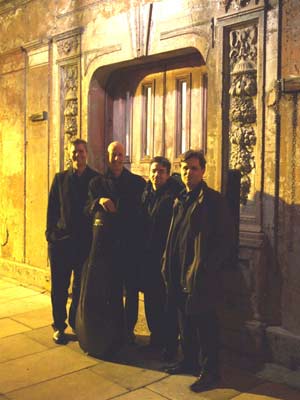
The Kreutzers resident at Wilton's
May/June 2008
Theirs must be the most innovative concert series in London this Spring.
RESPONDING TO TATE featured a wild, rough little piece by Ives as a starter and Bartok's No 3 (inspired by hearing Berg's Lyric Suite) to finish; no more modern sounding music will have been heard in the Capital this week...
Of the rest, the oddest items were two performances of a passacaglia for violin solo inspired by the infamous "crack" installation at Tate Modern - live, with the crack simulated by stretching the score on the floor along the aisle and Peter S S playing it from the back up to the stage; afterwards, a filmed version made early morning in the Turbine Hall itself before the gallery opened. In truth, the music did not match the jaggedness and disturbing instability one sensed at the site of the installation, nor did Aitchison's 'Shibboleth' really warrant two hearings...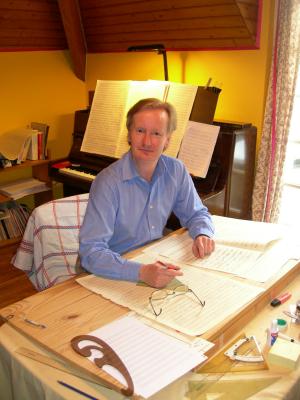
Most memorable for us was Steptoe's quartet, by one of Peter Sheppard Skærved's early mentors at Royal Academy of Music. Roger Steptoe's fastidious music is rarely heard hereabouts now that he lives in France * [as illustrated]. On this hearing, his quartets would certainly merit reappraisal and, possibly, recording by the Kreutzers?
Peter Grahame Woolf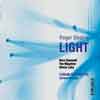
* Roger Steptoe Light
Concerto for oboe and strings
Seven Miniatures for piano trio
Light Sinfonietta for organ and strings
Oliver Latry (organ) Forum Sinfonietta etc
Explora EC 005
This CD is available from Discovery Records & documents Steptoes's "liberation from the burden of an English heritage", achieved by moving to France. The most interesting work, for me, is the organ concerto which gives the disc its title. There are not too many effective organ concertos and this one seems a useful addition, though I did wonder to what extent Latry's forthright playing had required artificial balancing with the string ensemble? PGW
See illustrated review of the Kreutzer Quartet's Portrait of David Matthews concert at Wilton's in January [Editor]
Illustration above: The Kreutzers outside Wilton's Music Hall
l to r:
Morgan Goff, Neil Heyde, Mihailo Trandafilovski & Peter Sheppard Skærved
Roger Steptoe photo: Frédérique Avril
-----------------------------------------------------
The Kreutzers/Wiltons residency is developing by stealth into one of London's most important and rewarding associations.
The audience is growing and last night, for Beethoven, it was nearly full house.
The Shorr/Sheppard Skaerved Beethoven Explored CDs series (Metier/Divine Art), welcomed by Musical Pointers, is advancing and this celebration of the release of Vols. 3 & 4 was graced, as is usual here, by extensive spontaneous-sounding introductions to the music, drawing upon Peter S S's vast contextual knowledge.
This time we were regaled with a picture of Beethoven's conviviality and his involvement with music making of all types, also quite a bit about finances and tactics to secure payment for commissions...
Franz Clement's unaccompanied solo violin variations should be regular recitalists' fodder; they would not be unduly dwarfed alongside Bach's canonic favourites and Ysaye's, and his 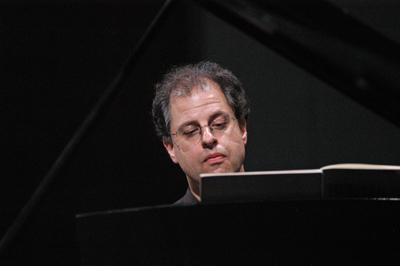 place in the scheme of things at the time should not be belittled. place in the scheme of things at the time should not be belittled.
The two Beethoven sonatas were given forthright, hard hitting, gripping performances, piano led by Aaron Shorr, as is right for those "Piano and Violin Sonatas". We were told (reminded?) about the peculiar history of the Spring sonata and that Op 30/2 was deliberately warlike music for the the conquering Tzar ... And a Mozart duo was brought into context, and delivered winningly by P S S with the Kreutzers' violist Morgan Goff substituting for a scheduled soprano; music which is far more telling seen live too than just heard through loud speakers at home...
The Kreutzers have a penchant for the new and the neglected fairly new, but the mainstream is by no means forgotten, even though none of their programmes is conventional.
-------------------------------------------------
There was astonishment on offer by Grieg in context on June 10. The Kreutzer Quartet has maintained an interest in Grieg and share with Michael Finnissy a fascination with his chamber music, brought together in this concert, overlong but full of interest.
Peter Sheppard Skaerved, bubbling over with enthusiasm, outlined the complicated history involving Ole 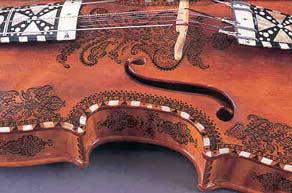 Bull/Knud Dahle and the Bull/Knud Dahle and the 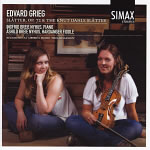 hardanger fiddle, pictured right. hardanger fiddle, pictured right.
For readers interested to pursue the Grieg/hardanger connection, I urge you to seek out a marvellous CD from Norway of Grieg's Slåtter op. 72 played by Åshild Breie Nyhus with even a track taken from a wax roll recording of Knut Dahle himself [Simax PSC 1287 - New Note in UK].
The players began with a short group of pieces to illustrate the connections and derivations of Finnissy's studies. After that introduction, the latter were presented doubled, i.e. Finnissy's 'completion' of an unfinished torso for piano quintet before the interval and his own working up the same material into a new composition afterwards.
The former movement, half an hour long with saturated textures and climax after climax deferring closure, would better have been left maybe for study situations like the seminar held earlier in the day at the Royal Academy of Music. Its performance provided an answer to the question of why Grieg never completed the piece... I would never wish to hear it again.
Finnissy's 'Grieg Quintettsatz' of similar length, opening the second half, introduced Finnissy's own more familiar idiom after a quarter hour and again towards the end; the piece as a whole was better varied in texture than the earlier study, and might have been better received by a general audience (Wiltons was near full again !) on its own - a similar feeling to that we had in an earlier sconcert in the series, when Jim Aitchison's 'Shibboleth' had been given twice.
The concert was best justified as a build up to an exceptionally committed and powerful account of the Grieg String Quartet in G minor Op 27, a work which broke the mould of the Germanic dominance chamber music at the time to such extent that the critics damned it and Peters Edition compounded the composer's disappointment by declining to publish it. It has indeed been an unfavourite string quartet of mine over the years, but the Kreutzers made as strong case for it as could be; as Neil Heyde said, it is a quartet which needs an audience !
Next week, Ives with compatriots, to be followed by a mouth-watering selection of rarities and premieres on 22nd, each concert guaranteed to prove an unique and memorable musical event.
----------------------------------------------------------------------------
AMERICAN CENTURY
Peter Sheppard Skaerved and Aaron Shorr have premiered countless duos by amongst others Henze, Rochberg, David Matthews, Finnissy, Jorg Widmann, Judith Weir, Elliott Schwartz, Paul Moravec, Sadie Harrison, Kenneth Hesketh, Naki Hakim, and Michael Alec Rose. Their American Century recital at Wiltons was given with the piano experimentally down off the stage, presumably intending closer rapport with the audience? That proved an acoustical disaster; whilst the violin sounded OK in Coates' solo sonata, composed before she'd become besotted with glissandi. But for Roberts and Ives, the piano was sucked into reverberation under the barrel-shaped roof, confusing the complexity of much of the music for most listeners.
This recital was another good demonstration of the importance of platform placing and seating positions at concerts, discussed in M P recently in connection with a recital at St John's Smith Square, and from time to time about experiences elsewhere from which I had gradually learned that it can be safer to sit under the lower ceilings of the side aisles in churches and halls with similar structures. That worked at Wiltons and, as heard sitting right behind the two performers in the second half, the music was clarified thereby.
It was a mistake to have given all twenty-one of the maverick virtuoso pianist Michael Hersch's gnomic fragments, and Peter SS's recitation of the poetic stimuli for each one was no help. For the first few, one thought of Webern's concise aphorisms, but soon the mind drifted to consideration of Schonberg's 7 X 3 (in Pierrot Lunaire) and a feeling that seven Herschs tonight would have sufficed... Moravec's Ariel rushed by to terminate this tough recital; the composer, at earlier rehearsal with these players, had urged them to play it faster and faster...
------------------------------------------------------------------
The Revolutionary Violin, an evening of delights which Peter Sheppard Skærved devised around the Paris musical scene of the time, even had a piece by the not-inconsiderable composer Marie Antoinette.
The more solid fare was a brace of quartets by Reicha and the miracle-teenager Arriaga, who died at nineteen. Both rewarded closest attention, and exemplified the spirit of the time in the equal interplay of the four musicians - Peter SS evoked the influences of Viotti on his disciples, and that of J.J. Rouseau to be found in the pastoral movements which he was surprised to discover figuring in each work in the programme.
This delightfully balanced concert will be remembered for a first sighting of Stephanie Beck, 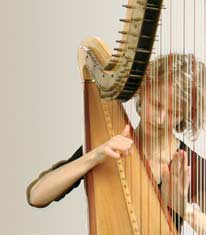 a charismatic young RAM graduate harpist of exceptional musicianship who shared the platform with a gentler than oft-times Peter SS, sitting placidly beside her to accompany rare duo pieces (and even turn her pages). Afterwards, in Spohr's violin/harp sonata, they demonstrated the emergent democracy in music, noted above. The harp repertoire of the time actually anticipated that equality in piano/violin duos which were still, until a little later, dominated by the piano accompanied on the violin, as in Beethoven's earlier sonatas... a charismatic young RAM graduate harpist of exceptional musicianship who shared the platform with a gentler than oft-times Peter SS, sitting placidly beside her to accompany rare duo pieces (and even turn her pages). Afterwards, in Spohr's violin/harp sonata, they demonstrated the emergent democracy in music, noted above. The harp repertoire of the time actually anticipated that equality in piano/violin duos which were still, until a little later, dominated by the piano accompanied on the violin, as in Beethoven's earlier sonatas...
Hopefully some of this music, most of it new to the majority of listeners, will find its way onto disc, and including PSS's fascinating wide ranging socio-/musicological commentaries with which he regaled us; links within links, too much to take in easily.
The music itself all sounded quite magical in the Wilton's acoustic, with the faint sound of an occasional passing train not disturbing at all. The happy informality of these concerts was enhanced by the players joining us in the auditorium to listen whilst their colleagues played.
The Kreutzers are preparing Reicha's quartets for commercial recording; Arriaga's have been recorded by ASV, but you may need to search for copies and there is scope for a new CD of them.
Peter Grahame Woolf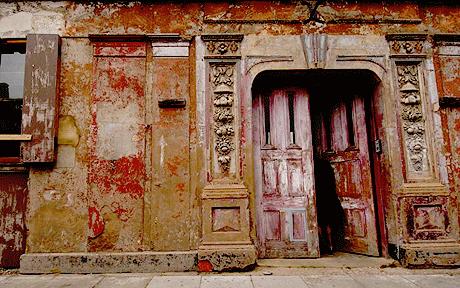
Battered charm: Wilton's music hall
Summer 2009:
Fauré, Beethoven, Dvorak
Gabriel Fauré - From Start To Finish
19 July 2009 - 5:30pm - 8:30pm
Fauré - Works for Violin and Cello
Fauré - Piano Quintet No 2 Op 115 (1919-21); Piano Quartet No 1 Op 15 (1876-9)
Marco-Antonio Pérez-Ramirez - Les synapses émotionnelles (British Premiere)
Peter Sheppard Skærved (violin and viola), Mihailo Trandafilovski (violin), Neil Heyde(cello)
and Diana Mathews (viola) Roy Howat (piano)
Pre-concert talk: Roy Howat and Peter Sheppard Skærved in conversation.
This was a glorious concert, one not to be missed by Fauré enthusiasts, and there was a good sized audience.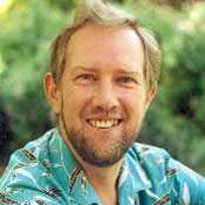
Roy Howat, in a revealing talk beforehand, discussed reassuringly concerns about discrepancies and accretions in Fauré's scores (especially re. tempi), which bother interpreters aspiring towards interpretative certainty. Fauré was quite relaxed and often accepted that his performers might know best what worked.
Howat was a tower of strength at the keyboard, maintaining steady propulsion of the music, imperturbably maintaining flow and ensuring that the ensemble displayed the long term architecture of these astonishing works.
There were some 'musical chairs'! Peter Sheppard Skærved showed himself adept on the viola, especially in the dramatic expressive trio of Pérez-Ramirez, a new name for most of us and one of whom we should hear more, and Diana Mathews of RAM deputised smoothly in the quintet for the absence of the Kreutzers' regular violist.
For some of us, the concert had been marred a little by problems which had prevented getting the piano up on stage for a weekend concert and down again afterwards. Sight-lines were nil except for those in the front rows; and the sound in the body of the Hall confused. Half way through one of my very favourite Piano Quintets, Fauré's 2nd, I discovered a partial view at very back under the gallery, where there is one higher row of seats. Best of all, up in the gallery for the second half the intense, adventurous Chilean novelty and Fauré's Piano Quartet No 1 sounded magnificent and completely compelling, indeed better than I remembered it from the past.
Peter Grahame Woolf
RECORDINGS Newly released, Howat's 2-CD set of Fauré's piano music [ABC Classics: Belle Epoque: a Portrait of Gabriel Fauré] was on sale at Wilton's; a must for all who were privileged to attend his recent masterclass and book-launch at the Royal Academy of Music
http://www.musicalpointers.co.uk/reviews/liveevents09/HowatMasterClass&booklaunch.html.
There are several recordings of the Fauré piano/strings chamber music, even though they are comparative rarities in live concerts. I have two of the quintets:
Domus
(Hyperion 1994) which I slightly prefer and Fine Arts/Cristina Ortiz (Naxos 2007) - cheaper, and also recommendable. Well worth having in your collection; it is music which grows with repetition.
There is also an interesting one from Howat's new Fauré Edition for Peters: the Violin Sonata Op 13 with an earlier, less complicated, version to be heard on a CD of French flute music with flautist Michel Bellavance [Meridian CDE 84509]
Beethoven Explored - 'The Lost Works...'
5th August 2009
Beethoven - Variations on Nel cor piu piu non mi sento (Paisiello) WoO 70 1795
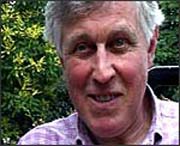
David Matthews [pictured] - String Trio No 1
Beethoven - String Trio Op 3 in Eb (1792)
Paganini - Capriccio 'Nel cor piu piu non mi sento' MS 44 (1821 version)
Judith Bingham - Ghiribizzo & L’Usignolo from The Lost Works of Paganini - Premiere(2009)
Beethoven - Piano Quartet Op 16 in Eb(1794-6)
members of Kreutzer Quartet: Peter Sheppard Skærved, Morgan Goff, Neil Heyde
;
Aaron Shorr - Piano
’The Lost Works..’, a fascinating programme featuring, not exactly ‘lost works’, but irregularly or underperformed music from the mid 1790s.
As Peter Sheppard Skærved explained in both his pre concert talk and his introductory remarks before each piece, the mid 1790s and 1796 in particular, marked the point when Beethoven went from being regarded primarily as a performer, with an emphasis on improvisatory skills, and began to be seen as a composer.
The programme explored the genesis of the pieces from this period and had both improvisation and the transposition and reworking of arrangements in what would be described in modern terms as the ‘workshopping’ of the music as the unifying features. In addition there was a new piece by Judith Bingham and a stunning performance of David Matthews’ First String Trio.
At the heart of the evening however stood a magnificent performance of Beethoven’s mighty Opus 3 String Trio. The density of textures and development of material through this six movement piece bears comparison with chamber works from any part of the composer’s career. The audience, totally drawn into the performance, broke spontaneously into applause at the ends of four of the movements and this seemed totally in keeping with the impact of the music. At close to 45 minutes in length, the Trio is comparable in impact to Mozart's Divertimento K563, to which it was clearly indebted - a point also made by Peter Sheppard Skærved in his introductory talk.
A wonderful evening then at Wilton’s, surely the friendliest London venue, as well as one of the most attractive.
Unreserved seating, unfailingly helpful staff, a marvellous acoustic - alright, you can hear the odd train rumble past, but otherwise ideal - a bar with a real, organic ale and the introduction of the pieces from the stage - much better than the sort of awful programme notes decried by Richard Morrison in September’s BBC Music Magazine.
A perfect summer’s evening in London.
Mark Dennis
Dvorak in Spillville
August 16th 2009
This was a joyous concert to conclude the Kreutzers' summer season at Wilton's. Dvorak is the "feel good" composer par excellence of the 19th Century.
The concert started eccentrically with two wandering violinists, one up on the high stage, playing in apparent unawareness of each other, against a noisy (electronic) background. That was a challenging and engrossing new work by an individually-voiced Australian-born composer Luke Styles, who moved to London (RAM & King's College) at the beginning of this decade and century. The main Dvorak sequence was broken by an ingenious group of violin duos, composed for teaching contemporary violin playing, by the Kreutzers' 2nd violinist, Mihailo Trandafilovski, some of them with easier pupil parts - they have been studied by Peter S S's small son, who is in attendance at every Kreutzer concert, and acts as platform assistant. He enjoys them and I reckoned they were as good as some of Bartok's 44, and was pleased to learn that they are to be recorded.
With two members of the quartet away on holiday, this was an opportunity to introduce to the Wiltons audience (a full house !) some distinguished colleagues of theirs. For the two Trios for 2-violins and viola, we heard different violists, both very distinguished artists. I preferred the lesser known Op 75a in Bb, with the suave, warm tones of Diana Mathews, who had featured in one of the July concerts. This is gentler music than the 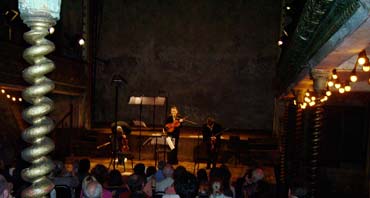 better known, more energetic C major Op 74 Terzetto, in which the Kreutzer violinists were joined by Kate Musker [pictured] whose vigour was notable also in the 2-viola quintet which brought the concert and the season to a resplendent close. better known, more energetic C major Op 74 Terzetto, in which the Kreutzer violinists were joined by Kate Musker [pictured] whose vigour was notable also in the 2-viola quintet which brought the concert and the season to a resplendent close.
Here the entry of Bridget MacRae's cello was a special moment after a rare first half devoted to higher strings alone and the rich sonority of all five musicians together flowered in the special Wilton's acoustic. It is a gorgeous piece, previously known to me only on disc, and so much better experienced live... The audience demanded more, and so the Scherzo was repeated.
PGW
Johannes and Clara
27 September 2009 5.30 for 6.00
This was an evening brought into being at short notice, whilst some of the Kreutzers were still on summer holiday. Appreciation of the early evening timing was widely voiced; on a Sunday suitsthis many music lovers.
A nearly full house greeted another of Peter Sheppard Skærved's individualistic pre-concert talks; a background to the concert, which featured major chamber works of Brahms. The context, illustrated by his readings from letters, was the close relationships of Clara Schumann, Joachim and Brahms.
The first half of the concert was magnificent, violin/piano romances of Clara Schumann making one regret that she had stopped composing in 1853, because of the mores of the time, almost half-a-century
before she died. The memorable high spot was a great performance of the Brahms Horn Trio, perfectly balanced and enhanced by the ambience of the venue. Michael Thompson was flawless on the horn and it was good to welcome back to Wiltons Roderick Chadwick, who had so impressed in a Messiaen concert in May 2008 & in Grieg/Finnissy concert in June '09. There were additionally a couple of tiny new Chants by David Matthews for vocalising violinist, in which Peter S S repeated his double act, first encountered at RAM in Evis Sammoutis' Taftophonia, and the evening was completed with an enthusiastic account of the Brahms piano quintet, by which time some tiredness was beginning to show. PGW
Mendelssohn and Schubert: The Glorious 1820s (part 2)
20 December 2009
This was my first visit to Wilton's Music Hall; I was enchanted by its historic atmosphere. It is a more intimate venue for chamber music than many other concert halls, and this charm was added to by Peter Sheppard Skærved's elucidating pre- concert talk.
The Kreutzers have done a public service by playing some of the great composers' less frequently performed works (in this instance Mendelssohn's Sextet Op.110 and Schubert's Variations on ‘Trockne Blumen’). However one was left tonight wondering whether rehearsal time with the extra players had been scrimped. They seemed to find the hall's acoustic difficult to work with; the violas did not always come through in the sextet, the strings did not balance the piano and the first violinist's tone sounded forced at times (too much bite and not enough resonance).
There were, however, occasions when this bite was used to great effect, furthering rhythmic drive, particularly in the string quintet, and there was a highly effective sul tasto end to its Scherzo: Allegro di Molto. The cellist Neil Heyde underpinned the quartet fantastically with his warm rich 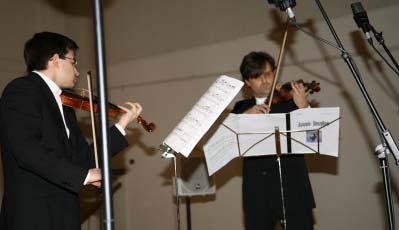 sound. sound.
The listener was transported into an entirely different sound world in Evis Sammoutis' Dimorphism for two violins by his ingenious use of harmonics. Certainly a composer to watch; find out more at http://www.musicalpointers.co.uk/reviews/liveevents/EvisSammoutis.htm
The Kreutzers came across as an innovative group with some lovely musical ideas but whose playing suffered from a lack of finesse at times. It is a shame that, in the current economic climate, many musicians' busy schedules do not allow enough rehearsal time to enable full artistic expression.
Anna Michel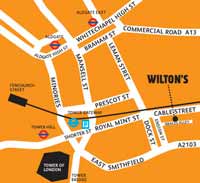
Wilton's Music Hall is now firmly "on the Map" for theatre and as a chamber musi venue.
The Kreutzer's residency has made it a must venue for lovers of chamber music and has built up a loyal audience. The range of their programmes, marked by informal presentation, makes it well worth making a possibly awkward journey for the promise of an unique musical evening.
In November to January 2008/09 the Royal Shakespeare Company gave a season there, and from December 30th 2009 Fiona Shaw and Deborah Warner are reviving their remarkable production of T.S. Eliot's THE WASTE LAND to mark Wilton's 150th birthday..
PGW
|



